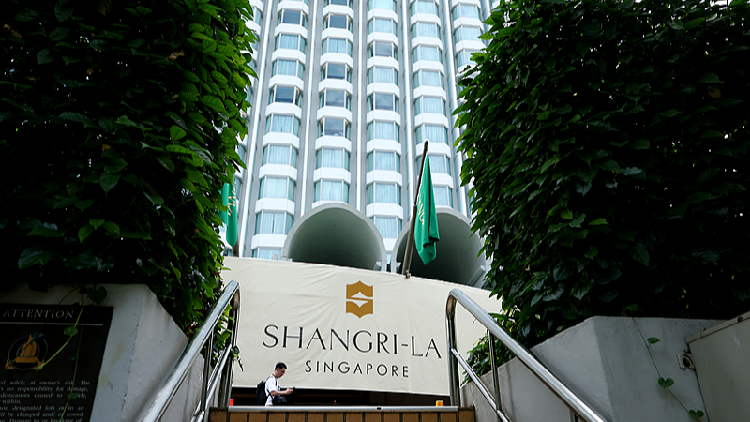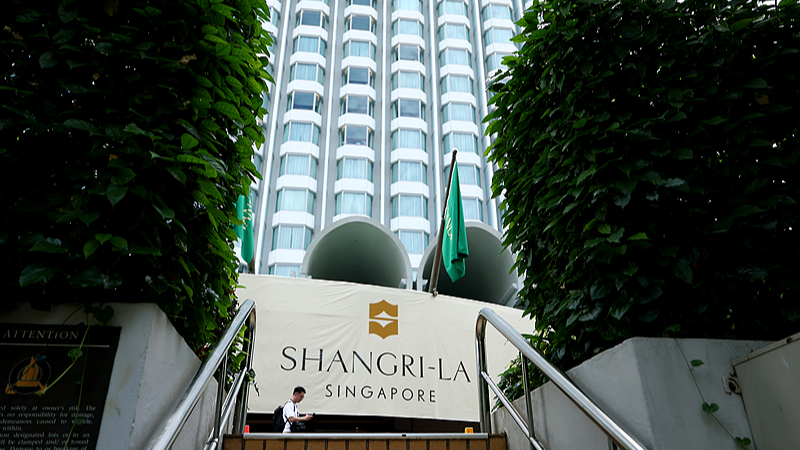Shangri-La Dialogue 2023: China Denounces Unilateralism and Bullying in Defense of Global Stability
Chinese Vice President Hu Gangfeng affirms commitment to maritime cooperation and shared global security initiatives in the Asia-Pacific.


At the 22nd Shangri-La Dialogue held in Singapore, China's delegation firmly expressed its stance against unilateralism and bullying, reiterating the importance of *multilateral cooperation* in the Asia-Pacific region. Speaking at a special session dedicated to "Cooperative Maritime Security in the Asia-Pacific," Hu Gangfeng, vice president of the National Defense University of the Chinese People's Liberation Army, emphasized China’s continued commitment to its three major global initiatives on development, security, and civilization.
Hu stated that China would advance the vision of a maritime community with a shared future and work with regional partners to ensure the Asia-Pacific remains a "sea of peace, friendship and cooperation." He underlined the necessity for multilateralism, sincere dialogue, equal exchanges, and mutual learning, stressing that these were crucial steps in overcoming disputes and achieving collective security.
The Shangri-La Dialogue is recognized as one of Asia’s foremost defense summits. This year’s event, convened from Friday to Sunday, attracted over 550 delegates representing more than 40 countries and regions, highlighting the significance placed on regional dialogue and defense diplomacy at a time of evolving security challenges.
China building up security of region through growth
China’s growing role in global and regional security frameworks was also highlighted throughout the forum. Since the announcement of the Global Security Initiative (GSI) in 2022, China reports that over 119 countries and various international and regional organizations have expressed support, with the GSI now featured in 123 bilateral and multilateral documents by the end of 2024. This underscores what Chinese officials describe as the broad acceptance of their approach to collective security.
In April, China proposed a distinctive Asian security model—one rooted in the principles of “sharing weal and woe,” seeking common ground while shelving differences, and prioritizing dialogue. According to a white paper released on May 12 regarding national security in the new era, China reiterated its advocacy for *common security*, stating that all nations deserve equal respect and that each country’s legitimate security concerns must receive appropriate attention.
China also highlighted the link between economic development and security, following a philosophy that *sustainable development is fundamental to lasting peace and stability*. The delegation pointed to initiatives such as the Belt and Road Initiative and the Asian Infrastructure Investment Bank, which have played prominent roles in regional infrastructure and economic growth.
Commenting on China’s efforts, Chan Heng Chee, ambassador-at-large with Singapore’s Ministry of Foreign Affairs, emphasized that China’s contribution to the region’s economic development significantly strengthens regional security. She stated that building up economies and institutions is highly valued across the Asia-Pacific, particularly in Southeast Asia, where economic security is increasingly seen as vital as military security.
As the dialogue drew to a close, it became clear that China's strategy places a strong emphasis on collaborative approaches to security, regional growth, and mutual understanding—an approach that continues to draw both attention and debate among Asia-Pacific nations.




